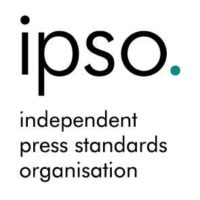By Sammie Jones-
A daily newspaper has been criticised by the press watchdog over its coverage of a psychiatric nurse’s sacking.
The Glasgow based Daily Newspaper has been criticised by the Independent Press Standards Organisation after upholding a complaint by Michael Philips, the nurse in question, against the Daily Record after the Glasgow-based paper ran a headline claiming he had been “axed after ‘encouraging violent patient to punch vulnerable man’”.
The complainant said these allegations formed no part of the reasons for his suspension and ultimate dismissal. He added that there had never been any single allegation during the full investigation that suggested revenge of any description. In support of this, the complainant provided a copy of the outcome of his Employee Conduct
Details of the hearing, dated 7 December 2018, stated that the complainant had been dismissed after it was alleged that he had witnessed a patient assaulting another, but had failed to respond.
The Record failed to take reasonable steps to confirm the truth of the article, but instead described the information as coming from a “trusted and reliable source”, but was not backed in the documentation from Mr Philips’s employee conduct hearing
In a weak defence, the newspaper said that, given the information provided by its source it was not possible to entirely dismiss the possibility that the claims may have formed part of the original complaints made against Mr Philips immediately following the alleged incident.
In an attempt to resolve the complaint, the Record offered to remove the article in question and publish a correction. IPSO acknowledged that the Record had presented the source’s comments as claims, and it had approached the hospital for further comment, but deemed further care was required as an official finding had been made.
Although the Record had not received confirmation of the hearing’s outcome at the time of the story’s publication, IPSO ruled that the paper should have clarified that it had been unable to establish whether the source’s claims had formed part of the panel’s reasoning.
The paper had quoted the source as saying: “Michael [and another man] were assaulted by a patient on March 6, but not seriously. This patient has profound autism and other learning difficulties and is quite vulnerable. The next day, it’s alleged they encouraged a known violent patient to punch him in retaliation.”
Challenging the accuracy of the story, the complainant complained under Clause 1 (Accuracy) of the Editors’ Code of Practice.Mr Philips denied he had been “assaulted” by a patient and had then“encouraged” another patient to “punch” them in retaliation.
A copy of the outcome of his hearing, which he provided to IPSO, stated he had been dismissed after it was alleged that he failed to respond after witnessing one patient assaulting another. That’s quite different from encouraging the patient to assault another.
RELIED UPON
The Record said the source had been relied upon in previous stories regarding the hospital, and noted that this was the first instance a complaint regarding the accuracy of their testimony had been raised.
The newspaper had put the specific allegation about the incident to the hospital, which responded that it was unable to provide any information due to “data protection/confidentiality”.
Upon receipt of the documentation provided by Mr Philips, the Record acknowledged that there had been no mention in the disciplinary

